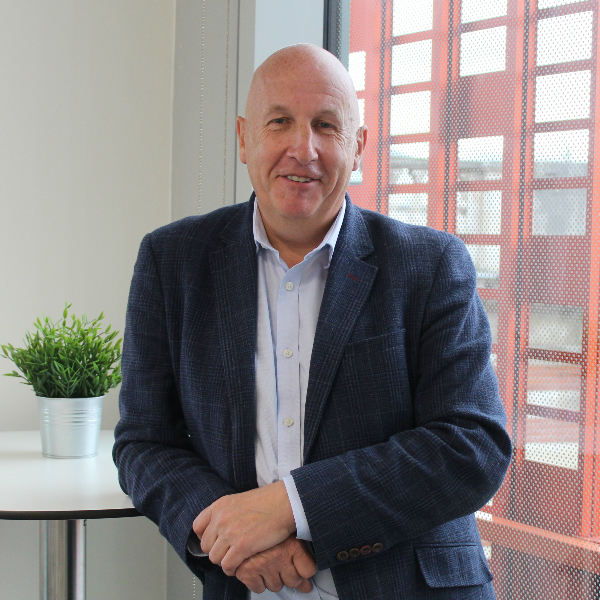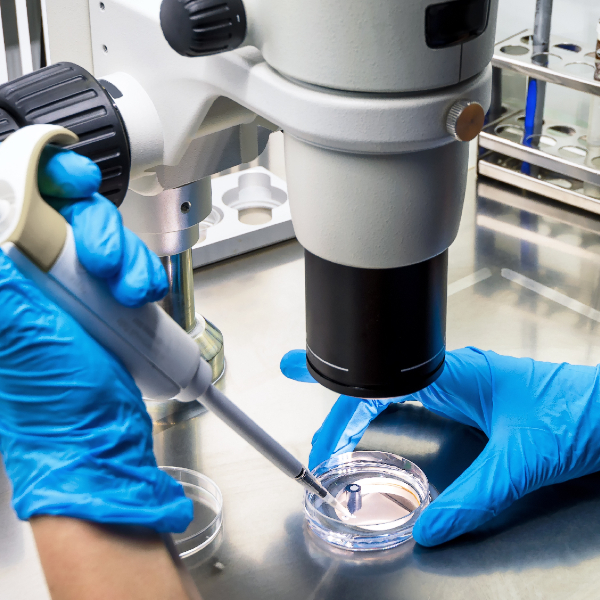This website uses cookies so that we can provide you with the best user experience possible. Cookie information is stored in your browser and performs functions such as recognising you when you return to our website and helping our team to understand which sections of the website you find most interesting and useful.
05 Nov 2020
Amanda Risino – Six months into the COVID-19 pandemic is a critical point for innovation

The COVID-19 pandemic has resulted in rapid transformation of health and care at a local, regional and national level.
Health Innovation Manchester has been linked into this work and has supported through a ground-up approach to innovation – working with the system to find solutions to address local priorities before sharing learning and results up through regional and national levels.
In this blog, Amanda Risino, Health Innovation Manchester’s Chief Operating Officer, explains how this approach to innovation has supported knowledge sharing and collaboration at all levels to address widespread issues from the COVID-19 pandemic.
One of the key things from the first six months of COVID-19 is how Health Innovation Manchester has been linked into the response at a local, regional and national level.
Locally we’ve been working across our partner organisations to innovate and develop solutions to problems they’ve experienced. We’ve then been able to connect and share these innovations at a Greater Manchester-wide level to support wider adoption of proven innovations, such as rolling out the COVID-19 tracker in care homes to more localities. And then we can share our work at a national level through the AHSN Network and as part of the NHS Reset and Recovery work.
Linked into our local partnerships and governance across Greater Manchester from the outset of the pandemic, thanks to our mature relationships with the system, we’ve been able to take a ground-up approach. We’ve been hooked into the conversations where priorities are being set so we can offer our expertise and develop solutions alongside the system from the beginning of discussions.
For example, in our COVID-19 mental health work we were able to quickly connect with the commissioners, the providers and the key people making decisions to identify existing and potential problems. We knew we’d need to support those already accessing mental health services, but we also appreciated that there would be an emerging need for early mental health and wellbeing interventions to support those affected by COVID-19 lockdown, isolation or anxiety. By providing access to digital services and HInM examining the outcomes and benefits of these innovations to the system we’re adding value and supporting residents to access support.
Internally within HInM we’ve also put in place structures to support the rapid pace of innovation needed to support the system through COVID-19. At the start of the pandemic, we looked across our entire portfolio of projects and decided which to temporarily pause, which to accelerate to support the response and where we could add value with new programmes. It aligned the entire organisation behind clear priorities and gave our staff a clarity about what we needed to deliver. Daily executive meetings meant key decisions could be escalated and issues resolved quickly while having the entire organisation focused on the same programmes allowed us to bring in the various elements of our expertise – including our Utilisation Management Team, the NIHR Applied Research Collaboration Greater Manchester, the MAHSC research domains, our Public Involvement and Engagement work – when it was required. This has almost given us a blueprint for how we can work in the future to enable greater collaboration not only within our local health and care system, but also within the various elements and teams that comprise Health Innovation Manchester.
Being part of our regional and national networks has meant we can share our successes, our learnings, our challenges with the wider health and care system and learn from each other. In particular the value of AHSNs and The AHSN Network has really been seen during the pandemic as we’ve been able to quickly share and learn from what has worked in other AHSNs so we can address similar issues within our own area. Our COVID-19 care homes programme in particular has received tremendous interest from AHSNs nationally and we’ve had fantastic opportunities to share our work and how we’ve worked with health and care, local government and industry partners to develop a UK-first innovation. Working together as part of the NHS Confederation Reset work has allowed us to share our work even further. This ability to share our rapid innovations and experiences must continue.
We’re now six months in to COVID-19 and at a critical point within the pandemic for us and organisation and the health and care system. COVID-19 is not over and potentially we’re approaching a second wave of infections combined with pressures the NHS faces over winter. We have innovations that are still being rolled out to support the COVID-19 response and some programmes are stretched out over a year, but we cannot indefinitely postpone our other work in key areas or our national commission. But what has been clear is that Greater Manchester doesn’t need us to be an organisation that parachutes in an innovation and provides temporary support without embedding it within the system. To enable innovations to be sustainable, we also need to ensure it is successfully meeting priorities and that the people, process and cultural factors at work have been addressed before we pull back and start something new. This is a challenge for us to work on as we look forward to our new AHSN Network national commissions on eating disorders, ADHD and cardiovascular disease, as well as other new priorities.
However, the level of trust, credibility and partnership working that we’ve achieved during the first six months of COVID-19 will play a vital role. Having a ground-up approach to innovation and directly collaborating with our partners to develop innovations and support them through to adoption and spread across Greater Manchester means we’ve developed fantastic relationships with our stakeholders. This way of working and the relationships that we’ve developed are things that everyone wants to continue. We’ve been seen as the go-to organisation for innovation and have delivered key projects that the system needed during a crucial time. And that hasn’t been a piece-meal approach, it has been wide-ranging and across Greater Manchester and is having a regional and national influence.
It’s a critical point and we have more challenges to face, but the past six months have given us the tools, experience and relationships that we need to adapt and continue to accelerate innovation and support the health and social care system.




